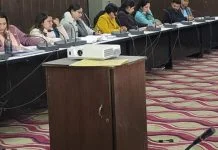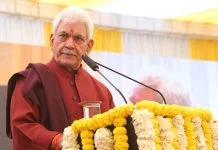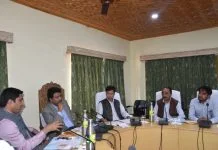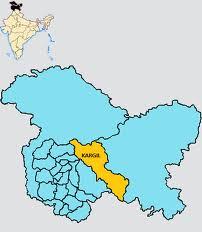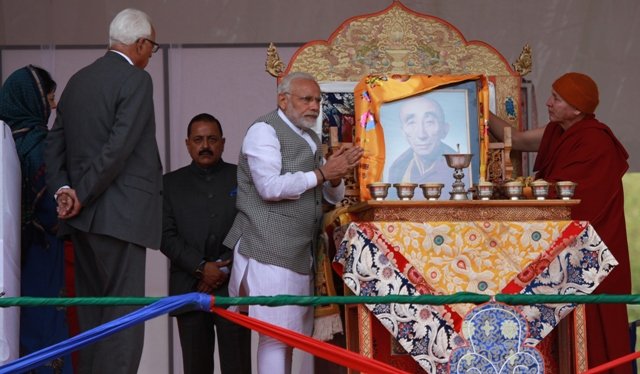Chief Secretary, B R Sharma Tuesday chaired the 1st meeting of the State Level Apex Committee (SLAP) for implementation of Swachh Bharat Mission (Urban) in Jammu.
Chief Secretary asked all the concerned Urban Local Bodies including JMC and SMC to move forward with a sense of urgency on the Mission, so that open defecation in the state is completed eliminated and a modern and scientific infrastructure is established for waste management.
In addition to the availability of Centre and State funds for the Mission, the Chief Secretary also called for exploring additional resource mobilisation from private sector participation, beneficiary share, CSR and other modes of external assistance.
In SBM, projects under PPP are encouraged to invite private capital in urban infrastructure as well as to bring in private sector efficiency in delivery of urban services, operation and maintenance.
Commissioner Secretary H&UDD, Bipul Pathak briefed the Committee on the progress achieved in the implementation of the mission. He said the state has adopted cluster based approach for scientific management of solid waste in all urban centres of the state. He informed that DPRs are under technical and financial appraisal besides contract for establishment of Waste to Energy Plant on BOT basis in the capital cities of Srinagar and Jammu is at advanced stage of finalisation.
On eliminating open defecation, Bipul Pathak said that the department has already received applications from individual households for availing the toilet facilities under the Mission. In this regard, the Committee asked the department to work out a standardised type design of the toilet unit along with its viable cost.
SBM is being implemented by Union Ministry of Urban Development and Union Ministry of Drinking Water & Sanitation in Urban and Rural areas respectively.
SBM (Urban) aims to ensure that no household engages in the practice of open defecation and all households are provided with toilet facilities at the individual or/and community level, besides improving the efficiency of waste collection and its processing for disposal or conversion to energy.





